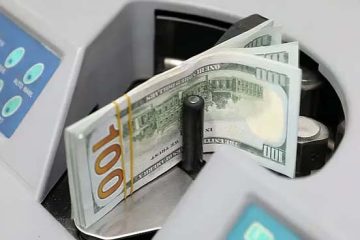The inter-bank call money rate (interest rate that banks charge from other banks) on Sunday increased further to 190 per cent as cash shortage hit the banks and the non-banking financial institutions (NBFIs) continued to borrow at higher interest rates.
Banking sources said that the call money rate shot up to 190 per cent on Sunday from 175 per cent on Wednesday as the banks and NBFIs faced further shortage of liquidity after increasing the statutory liquidity ratio (SLR) and cash reserve ratio (CRR).
In response to the Bangladesh Bank’s directive, the banks and NBFIs increased their SLR to 19 per cent from 18.5 per cent and the CRR to 6 per cent from 5.5 per cent on Wednesday.
‘The money market remained volatile before the increase of SLR and CRR as banks had to accumulate additional funds. The crisis has continued as many of the banks found that they still have liquidity shortage,’ said a top official of a private commercial bank.
Bankers also blamed the Bangladesh Bank for not releasing enough funds to the banks to enable them to meet their cash requirements.
The Bangladesh Bank on Sunday lent Tk 3,279 crore to 23 banks and NBFIs through Repo, although the banking sector had demanded around Tk 12,000 crore.
Economists had earlier warned that the economy would be affected severely if such volatility in the call money rate continued.
According to bankers, the call money rate usually goes up to 20 per cent before the Eid ul-Azha because of heavy withdrawal of funds by the clients to purchase rawhides of sacrificed animals.
The call money rate has gone unusually high in the last few days, observed the Bangladesh Institute of Development Studies’ director-general Mustafa K Mujeri, who was also the former chief economist of the Bangladesh Bank.
‘The Bangladesh Bank’s rate hike has prompted banks to scamper for liquidity. Besides, imports have peaked, creating huge demand for money,’ he told New Age on Wednesday.
He warned that if the present volatility persisted in short-term lending, the economy would be adversely affected as the cost of funds would increase.
‘Bankers are buying money at a high rate, so they may increase the interest rate on deposits for accumulating funds, after which they will increase the lending interest rates. The impacts of hike of lending interest will hurt the investment sector,’ Mujeri explained.
He said that the cost of business would be higher if the cost of funds increased.




















